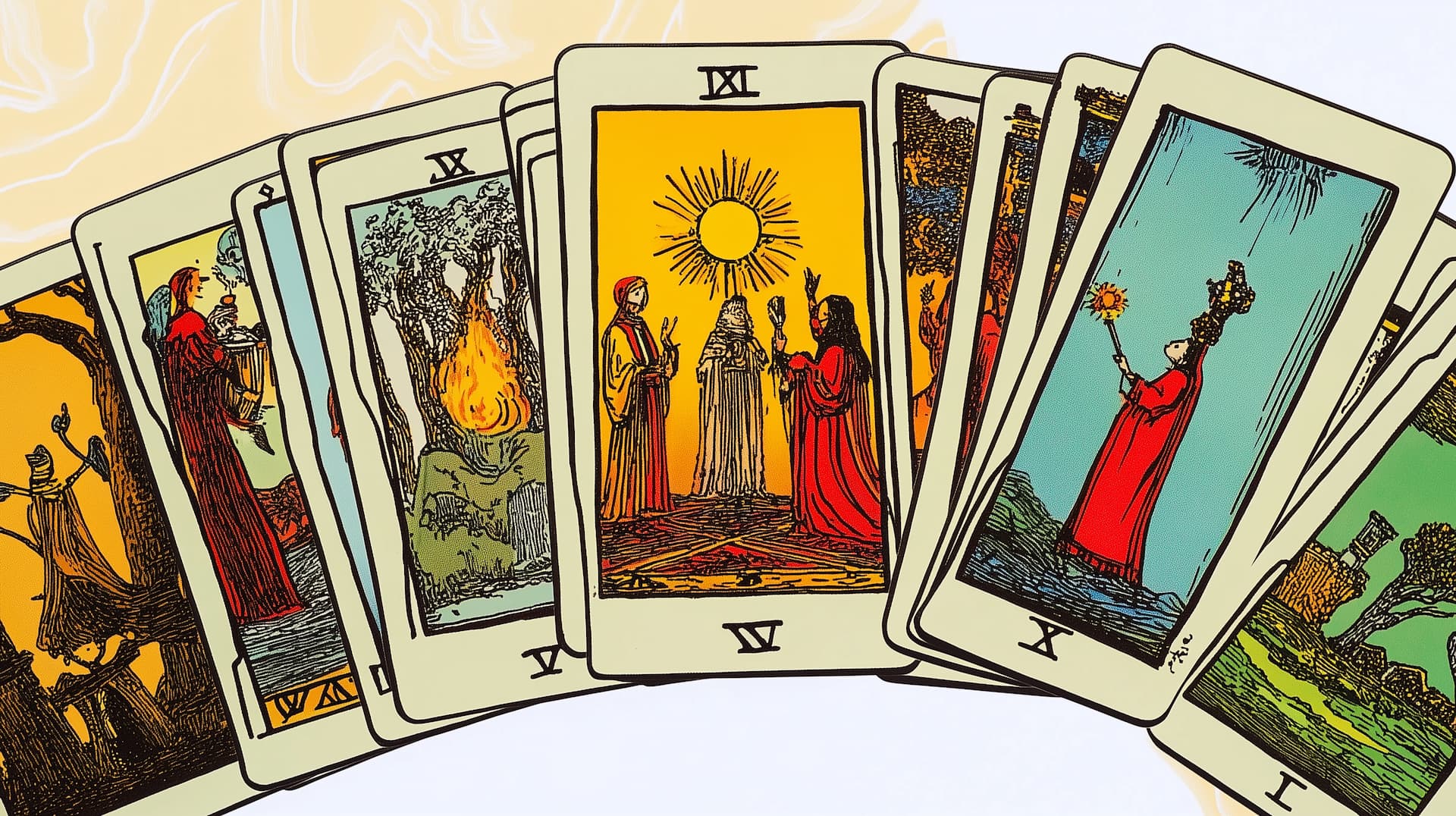
Tarot reading has fascinated the human race since time immemorial with its origins going back several centuries. And it’s no secret that this ancient art of divination is an excellent way of navigating life’s greatest mysteries and challenges. Mastering tarot reading can be an easy task for those who are gifted with psychic abilities right from their childhood. But you’d be happy to know that this learning process can be simplified.
One surefire thing all expert readers will tell you if you want to improve at tarot reading is this – practice the skill of formulating and asking questions. Every good tarot reader should know how to formulate questions for tarot. The insights and wisdom the cards offer are only as good as the questions you put forward, and the way in which these are asked.
In this article, we help you learn some tips and tricks to becoming a masterful tarot reader and how to form questions for tarot.
Why Do The Kind Of Questions You Ask Matter In Tarot?
It is clear as crystal that tarot is basically a form of questioning and answering using divine psychic energies to help, guide and direct people in their problems, challenges, careers, and life in general.
By the same logic it becomes abundantly clear that the answers you receive will be heavily influenced by the type of questions you ask. If you are looking for financial advice or hoping to find some answers and guidance on a romantic pursuit then the good news is that it is all within reach when it comes to tarot provided that the questions make sense.
Here are a couple of pointers that you can use and implement in your practice and reading sessions that will improve the quality of your questions.
- Using A Well Shuffled Deck With Intent And Purpose
What normally happens to a dormant tarot deck that is kept idle for a long time is the deck generally tends to attract different energies and if it is not shuffled and cleansed, then you actually never know if the messages you receive may be beneficial or as insightful as you expect even with the right questions.
So what an experienced reader will tell you is that setting the intention, mood as well as a purpose goes a long way in helping the messages you need to hear and know come through to you.
- In Any Reading Yes And No Type Of Questions Are Your Enemies
Sometimes it can be very easy to try and end a session early and only ask questions that have either a yes or no answer, but we want to let you know right now that this is the worst thing you can possibly do. Rather we suggest asking questions that are open ended that are capable of being built upon.
This is because you can’t elaborate and get the finer details when you ask a question whose answer is either in the affirmative or the negative. Formulate your questions for your readings such that you have enough room for interpretation and detailing. It helps serve more insights and perspectives which you need to hear and listen to.
A classic example is staying away from asking questions like “Will I get engaged in two months?” Instead what you can do to improve this type of very specific questions and still get the answer you need is to frame it like “What do I need to know and do in order to get engaged?” Such questions give you more space and freedom for interpretation and hence you get a detailed insight and reading.
- Try the Building and Adding Method While Asking Questions
There is a good reason why in the tip above we just mentioned why when asking questions you need to be a bit open-ended in your style and approach. When your questions are open-ended you naturally get to ask follow-up questions and build upon your main question which sometimes proves very necessary in improving the quality of the reading.
It helps provide more clarity and detail into a picture of everything you need to know and hear at the moment. Remember that two answers are better than one and the more the answers and messages you get it simply means you will be getting a more detailed reading full of guidance and insights into your life.
A good technique we can suggest for the building and adding technique is to ask the most basic questions for the same situation such as asking about how something happened, why it is happening, and what you need to know to proceed further.
- Tarot Spreads And Formulating Questions Are A Good Match
Any tarot spread has a good chance of teaching you how to formulate questions for tarot effectively and easily. Most people fear to practice and perform various kinds of tarot spreads because they either get overwhelmed or nervous. Little do they know that it is not a good idea and that this action will slow the learning process and limit your skills and potential to become a good reader.
A spread of any kind already comes with and includes specific questions that have already been designed by the person who created the spread in the first place. All you have to do is understand how the questions have been framed by the creator.
They think of the goal, the intent, and the outcome they wish to know or hear while formulating their questions for the spread. Practicing some of these spreads will surely help you get an idea of what you need to do to formulate good questions for your own readings.
You can always rely on and trust tarot cards to help you and show you the way no matter what kind of a pickle you are in right now and provide answers to questions you have about your life haunting and troubling you. All of these are possible only when you ask the right questions and know how to formulate questions for tarot.
Fortunately for you and anyone else who is just about to start their journey into the world of tarot, the following tips we have listed for you should definitely be enough to kick-start your journey and get you on the right path toward becoming the best and a masterful tarot reader who knows just exactly what to ask the cards.




